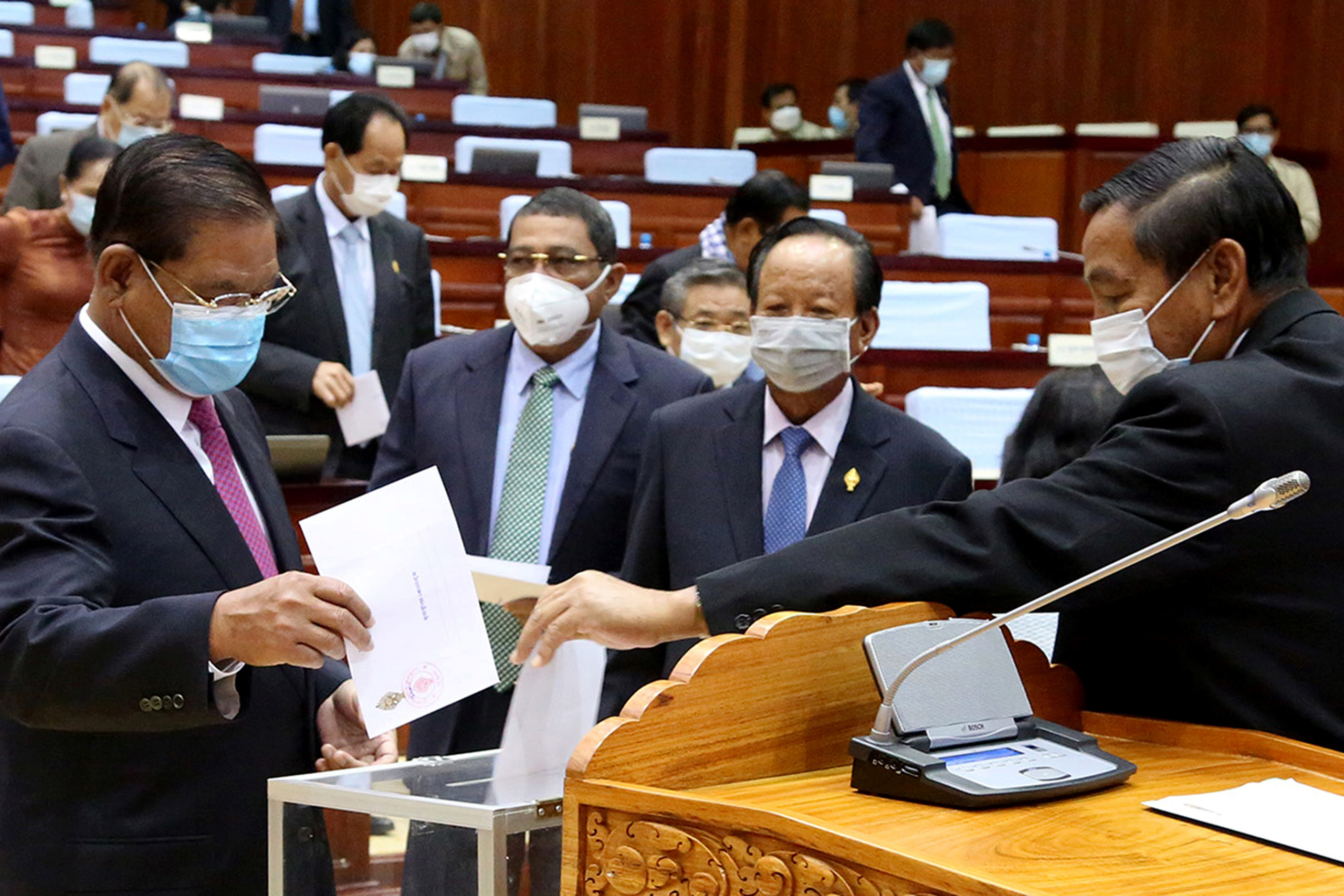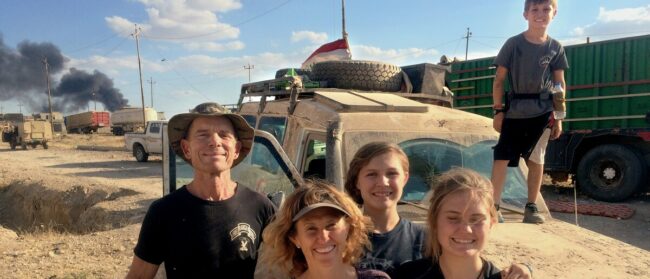World governments have changed the way they operate in light of the Covid-19 pandemic, with economies in hibernation, parliaments adjourned and daily life interrupted. Leaders have taken unprecedented steps to control the spread of the novel coronavirus, utilising emergency powers normally seen in wartime to shut down businesses and restrict social gatherings.
Government and public health authorities have argued that to stop the spread of Covid-19 some freedoms will have to be suspended to allow for a faster response to the virus, saving lives in the process. It is, however, delicate work for officials to successfully balance liberty and community safety.
On April 17, the Cambodian Senate ratified State of Emergency powers giving Prime Minister Hun Sen an enlarged armoury in the battle against Covid-19. The law, officially labelled the Law on Management of the Nation in State of Emergency, consists of five chapters and 12 articles, and is based on the new Article 22 of the constitution.
There are several clauses in the bill that have raised concern among experts and commentators.
According to an English translation of the law, Chapter Three, Article Five of the draft legislation includes measures to control the spread of information, giving the government the ability to monitor communications, control media and restrict distribution of information that they deem to be liable to generate public fear or unrest.
A clause in the same chapter can broadly authorise measures that are “deemed appropriate in response to the state of emergency”. And even though a three-month deadline to any declared emergency was added to the bill, this can be extended indefinitely by Royal Decree.
Ministry of Justice spokesman Chin Malin looked to dispel concerns about the powers.
“The purpose of making this law for Cambodia is not unique, as there is this law already in many other democratic countries,” Malin said after the draft unanimously passed Cambodia’s one-party lower house, the National Assembly, on April 10. “The law is intended to protect public order, security, people’s interests, lives, health, property and the environment.”
After the April 17 passage of the law through the Senate, Cambodia’s UN delegation submitted a letter to the High Commissioner for Human Rights justifying its fast-track passing, saying it would only be invoked when there was a “desperate need for safeguarding and maintaining security and public order”.
However, the question remains whether the powers now afforded the prime minister allow too much room for manoeuvre, potentially curtailing rights in the process, or are simply a necessary bitter pill to swallow during an unprecedented global pandemic.
Governments must ensure that any measures taken are limited in duration … what we see in Cambodia is Hun Sen shamelessly granting himself ever more power at a time of huge anxiety for Cambodia’s people
Maria Chin Abdullah, a Malaysian Member of Parliament and member of ASEAN Parliamentarians for Human Rights
Malin is correct in that emergency powers are not unique. But in the case of Cambodia, some observers of the Kingdom have their fears. In a recently released four-page document, UN special rapporteurs said they have “deep concerns” over the draft law citing “broadly-worded language concerning power and penalty”.
While Hun Sen’s new powers are not dissimilar to those seen across the world, they do contain key differences that give cause for concern, according to Lee Morgenbesser, the author of The Rise of Sophisticated Authoritarianism in Southeast Asia and a lecturer in international relations at Griffith University in Australia.
“Generally speaking, the new emergency powers enacted in Cambodia differ in two ways,” Morgenbesser explained. “First, the emergency powers are open-ended, rather than limited to the duration of the pandemic. This important detail demonstrates that Hun Sen intends to use the laws to further crush opposition groups, stifle civil society actors and clampdown on independent media outlets.”
While Chapter Two, Article Three of the new legislation outlines that a national emergency cannot last longer than three months, importantly, this can be extended with no limit by Royal Decree. This differs from the Philippines where a three month limit is also in place, but which can only be extended under scrutiny from Congress, a cross-party body. Even with this oversight in place, there remains concern in the country at the extent of President Rodirigo Duterte’s emergency powers, enacted late last month.
“Second, the emergency powers are extremely broad in scope, rather than being focused on the economic and health problems presented by Covid-19,” Morgenbesser continued. “The monitoring of communications and the prohibition against the distribution of information [Chapter Three, Article Five], for example, offers a new political weapon for Hun Sen to maintain power.”
Maria Chin Abdullah, a Malaysian Member of Parliament and member of ASEAN Parliamentarians for Human Rights (APHR), was also damning in her critique, telling the Globe that the government was broadening their powers to too great an extent.
“It’s legitimate to consider emergency powers in response to Covid-19, and other countries have done so, but governments must ensure that any measures taken are limited in duration and aimed at achieving a legitimate objective; in this case, stopping the spread of the disease,” Abdullah said.
“Instead, what we see in Cambodia is Hun Sen shamelessly granting himself ever more power at a time of huge anxiety for Cambodia’s people.”
Cambodia’s new laws mirror those introduced in semi-authoritarian states around the globe since the outbreak of Covid-19.
The right-wing Hungarian government of Viktor Orban, for instance, now has the ability to impose jail terms of up to five years for those spreading false information that it deems could upset people or hinder the fight against the virus, following a recently passed law.
When governments typically pass a law to suppress criticism, they often use the term ‘false information’ but without ever defining what falls into this
Daniel Bastard, Asia-Pacific director at Reporters Without Borders
The emergency law also chimes with a recent trend witnessed in Cambodia of suppressing free press, as Chapter Three, Article 5 of the new legislation includes measures restricting journalists’ ability to work if enacted.
“What is rather paradoxical is that for many years, journalists in Cambodia have arguably been some of the freest in Southeast Asia,” said Daniel Bastard, Asia-Pacific director at Reporters Without Borders (RSF), adding that the vagueness of what constitutes ‘disinformation’ within Cambodia’s new law is worrying.
“The wording [of Chapter Three, Article 5] is very strange – it leaves a large amount of room for interpretation in a country where the judicial system is not so independent,” he said. “When governments typically pass a law to suppress criticism, they often use the term ‘false information’ but without ever defining what falls into this.”
For Morgenbesser, there is not just a concern regarding the laws themselves – but the individuals wielding them.
“Given Hun Sen’s established track record of using any window of opportunity to crush political rights and civil liberties, he does not deserve the benefit of the doubt,” he said.


